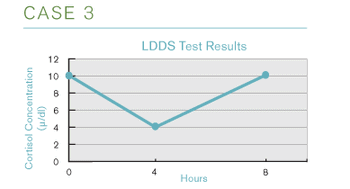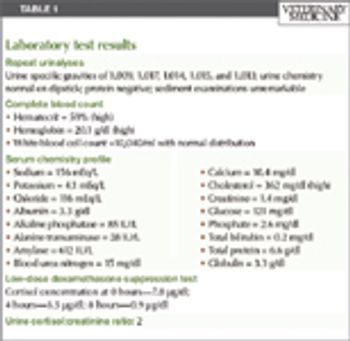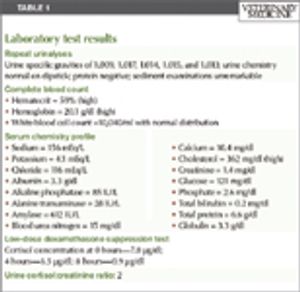
Dr. Bruyette may like his adventures and ambitions to be big, but when it comes to veterinary patients, he prefers small.

Dr. Dave Bruyette received his DVM from the University of Missouri in 1984 and completed an internship at Purdue University and residency in internal medicine at the University of California-Davis. He was a staff internist at the West Los Angeles Veterinary Medical Group and a member of the Department of Comparative Medicine at Stanford University. Dr. Bruyette was an Assistant Professor and Head of Internal Medicine at Kansas State University and Director of the Analytical Chemistry Laboratory at Kansas State. Currently, he is Medical Director at the West Los Angeles Animal Hospital and CEO of Veterinary Diagnostic Investigation and Consultation. Dr. Bruyette is a Diplomate of the American College of Veterinary Internal Medicine.
Two more interesting things:
1. We recommend asking Dr. Bruyette about whitewater rafting in Patagonia.
2. Dr. Bruyette is funny. Really. Very funny. So don't miss the chance to see him talk at the Fetch dvm360 conferences.

Dr. Bruyette may like his adventures and ambitions to be big, but when it comes to veterinary patients, he prefers small.

While theres no cure for this adrenal condition, cats can achieve their full life expectancy with appropriate treatment.

Let Dr. David Bruyette keep your cortisol concentrations from rising with these tips for confirming hyperadrenocorticism in dogs.

Dr. David Bruyette, AKA "Dr. Endocrine," is back with the basics (and a bit more) on treating this sometimes tricky disease.

We asked Dave Bruyette, DVM, DACVIM, how hes using at-home blood glucose monitoring to improve care for diabetic pets, and how he convinces veterinary clients to overcome their fear of needles and injections. Heres what he said.

Test your knowledge of what these LDDS test results mean.

Come along as Dr. David Bruyette cuts through the mysteries of this potential confounding factor in diabetic patients.

We know you like to save pet owners money. Dr. Dave Bruyette explains how, in the long run, at-home blood glucose monitoring does just that.

Prominent endocrinologist says veterinarians may soon be able to do more than treat clinical signs.

A new approach to an old problem

Hyperadrenocorticism develops most commonly in middle aged to older cats.

Dr. David Bruyette comments on the latest developments in treating canine PDH and whether or not pituitary surgery will take the place of medical therapy.

Mitch was presented to his primary care veterinarian for evaluation of polyuria and polydipsia of six months' duration.

Dr. David Bruyette makes his recommendation on treating this endocrine disease in dogs.

New insulin options are available, so which should you turn to in diabetic dogs?

Dr. David Bruyette examines what the studies have to say about this question.

Dr. David Bruyette discusses basal insulin, trilostane, and iodine-restricted diets.

Advice on a geriatric cat with hyperthyroidism, renal disease, and diabetes.

Dr. David Bruyette helps determine the best course of action.

Dr. David Bruyette tackles the case of a cat with two endocrine diseases.

Dr. David Bruyette helps a reader with a difficult endocrinology case.

Dr. David Bruyette helps sort through the causes in this case.

In general, we try to regulate the diabetes before attempting to diagnose hyperadrenocorticism.

Dr. David Bruyette answers this reader question.

It is unlikely the low-dose prednisone treatment is resulting in the panting the owner is reporting.

I have a question regarding species specificity of the free T4 test. I work at a zoo and was under the impression that this test was species-specific and could not be used in other species.

Q: We have an approximately 15-yr-old MN DSH clinic cat who has diabetes. I "rescued" him from his owners who were no longer giving him insulin or keeping him on Purina DM.

Dr. David Bruyette discusses how to administer and monitor trilostane in dogs with hyperadrenocorticism, including whether to switch affected patients from mitotane to trilostane.

Two things you may not know about canine Addison's disease: A history of weight loss or hypoglycemia may precede the typical electrolyte abnormalities, and DOCP can be administered immediately in dogs that may be having an addisonian crisis.

Dr. David Bruyette discusses recent changes in the availability of insulin products.

Published: May 1st 2012 | Updated:

Published: August 1st 2012 | Updated:

Published: April 1st 2012 | Updated:

Published: November 1st 2011 | Updated:

Published: May 1st 2008 | Updated: